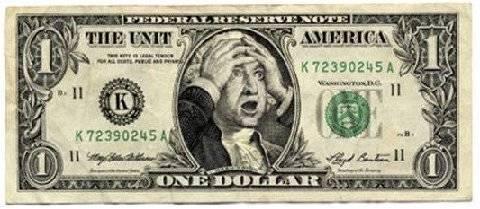
How much do we understand the oppressive impact of the country's corporate tax system on the average worker? It's a question that I would wager most of us don't go to bed pondering and likely isn't the common banter during lunchtime at Starbucks.
But Steve Mnuchin, the U.S. Treasury Secretary, apparently believes it's a topic that needs more consideration. According to Mnuchin, the current corporate tax rate is the bane of the average worker, because it unduly taxes the common man much more than it burdens those at the top of the corporate ladder. According to two recent presentations he's given, more than 70 to 80 percent of taxes paid by corporations actually are paid by hourly workers, not CEOs and company owners.
In an interview on Fox News, Mnuchin insisted that "most economists believe that over 70 percent of corporate taxes are paid for by the workers." He later followed that statement up with a presentation designed to promote the Trump administration and Congress' corporate tax reform. According to his second set of statistics, "over 80 percent of business taxes is born [sic] by the worker." And those are alarming figures, the Trump administration says, that need adjusting.
Of course, they are also a good sell if you are looking to convince voters that you've got the little guy in your sights and that retooling how much America's biggest tax payers (like -- ahem -- the president) pay as corporate taxes is going to put more money in the average laborer's pockets.
And, as Catherine Rampell, opinion writer for the Washington Post points out, there's other problems with the stats. They don't match.
Nor, Rampell points out, do the most informed economists on the topic believe those statistics. A white paper published in 2012 by the Treasury Department found that 18 percent of corporate tax is borne by workers. The other 82 percent was assumed by the corporate owners.
And Mnuchin knows that.
Which may be why (according to Rampell) the Trump administration recently updated the Treasury website. Apparently a link to the paper that explains the real corporate tax structure and where those taxes and who really assumes those taxes, has been removed from the Treasury website.
Her claim takes a bit of deep thought as well, since most administrations aren't likely to remove archival information from the public's view just so it can hide its intentions. For most administrations, simply saying "out with the old approach, in with the new" is enough.
But Rampell isn't alone. Presenting unsubstantiated data that suggests its the minimum wage worker or the migrant worker for that matter, that really enjoys the benefit of a 15 percent corporate tax drop has many analysts on alarmed. It suggests not just a rewriting of tax laws, but a rewriting of history.
This isn't the first time that the Trump administration has taken steps to downsize access to public information. The recent dismissal of the government's climate assessment committee and its delay in publishing a report that confirms the accuracy of climate science still has the administration on the hot seat.
As the Washington Post points out, it isn't really that data seems to keep on disappearing that should be a concern but the ramifications of unsupported claims. According to research published by the Urban-Brookings Tax Policy Center, by 2027, the country's highest income earners would see a windfall of benefits from the proposed changes. Middle-income earners on the other hand, would feel the impact of a next tax hike.
Which all goes to prove that grandiose claims that arrive without the hard data and public access are quite often, just that.
Flickr image:Reuben Ingber
Jan Lee is a former news editor and award-winning editorial writer whose non-fiction and fiction have been published in the U.S., Canada, Mexico, the U.K. and Australia. Her articles and posts can be found on TriplePundit, JustMeans, and her blog, The Multicultural Jew, as well as other publications. She currently splits her residence between the city of Vancouver, British Columbia and the rural farmlands of Idaho.














